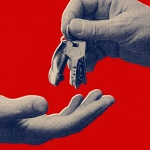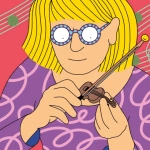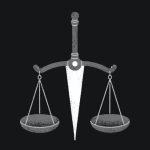Recognize yourself: This has been stated by many. Perhaps you’ve heard of Socrates? However, the phrase appears to have come from the oracle at Apollo’s temple in Delphi, where it was engraved on the stone exterior. Lao-tzu wrote in the Tao-te Ching, “You are smart if you understand others.” You are enlightened if you comprehend yourself. Shakespeare’s own witty proverb, “To thine own self be true,” assumes that you know enough about yourself to be true to it.
To a certain extent, good advice. You are either a baby or have more serious issues than a deceased philosopher can handle if you have no idea what you like, want, value, or personality are.
However, there are moments when it seems like everything in modern life is pushing people to become more and more intimate with themselves. The number of people seeking self-understanding through therapy is increasing. They are reading, sleeping, and keeping track of their steps. In order to determine their Myers-Briggs type, Enneagram number, or Harry Potter house, they are providing their information to corporate marketing databases. According to Rebecca Jennings’s report for Vox, creators on TikTok are creating new micro-identities that people can identify with: “therapist friends” are people whose friends talk to them about their problems; “dilly dally-ers” are people who like to waste time and fart around. It can seem like there is never enough time to discover and define who you are.
It can also seem like an essential aspect of life, as if you’re missing out on something if you’re not trying to understand yourself. (Another quote from our ancient friend Socrates is, “The unexamined life is not worth living.”) Rebecca Schlegel, a social psychologist at Texas A&M University, told me, “If you haven’t noticed how pervasive this message is in society, just pay attention for the next few days.” “We almost take it for granted because it is so ingrained in our culture.”
However, pursuing the goal of perfect self-knowledge too relentlessly can leave you even more perplexed and stuck than when you began. Personality tests and Fitbit data cannot overcome the limitations of human self-perception. According to Simine Vazire, a psychology professor at the University of Melbourne who has researched self-knowledge, “we should never think that we know ourselves very well.” “Anyone who believes they do is, by definition, lacking in self-knowledge, as they are, at the very least, mistaken.”
Some behaviors and attitudes originate in the unconscious mind, which is outside of your sphere of awareness, which makes it challenging to know yourself. According to Timothy Wilson, a psychologist at the University of Virginia and the author of Strangers to Ourselves, “the mind purrs along under the hood in various ways.” He provides numerous examples in his book, including how and why people interpret ambiguous situations. My unconscious tendencies will decide whether I believe I’m a socially awkward idiot that everyone despises or that my audience must not have heard me over the noise of the party because I’m obviously funny and charming if I crack a joke at a party and nobody laughs.
Another obstacle is bias. For instance, even though it is obvious that none of us can be above average, many people have a propensity to rate themselves as better than average across a variety of attributes. According to Vazire, one of the issues with a personality test is bias. The test is “just repeating to you what you tell it,” she said, rather than exposing some secret that was locked inside.
The fact that most people aren’t completely aware of their capacity for change is another challenging issue. “The End of History Illusion,” a study Wilson conducted with 19,000 participants, revealed that while respondents said they had changed significantly over the previous ten years, they generally thought they were done changing and wouldn’t change much more over the next ten years.
Even when someone approaches the quest for self-knowledge with consideration and purpose, it can still be challenging. Asking yourself the difficult questions, journaling, or practicing meditation can all be very helpful. Rumination, or becoming obsessed with a problem and revisiting it repeatedly, is a negative aspect of active, conscious introspection that can worsen the situation and lead to a downward spiral of negative thoughts.
Overemphasizing the positive aspects of one’s life can also be detrimental to oneself. When Wilson asked participants in a small study to consider the state of their romantic relationship, the act of reflection itself appeared to alter the participants’ opinions. Some became less content with their relationship, while others became happier. Wilson, however, asserted that these shifts in viewpoint did not always represent people’s actual emotions. After all, love cannot be adequately explained, and Wilson hypothesized that the participants placed too much trust in the responses they provided for the study. They might come to the conclusion that they were not as in love as they had initially believed if they found it difficult to enumerate all the positive reasons they loved their partner. According to Wilson, people occasionally “create a new narrative about their emotions based on the reasons that happen to come to mind.”
In his book, he explained that introspection should be viewed more as literary criticism “in which we are the text to be understood” than as an archaeological dig to unearth the capital-T Truth of ourselves. A person has many truths, just as a good novel doesn’t contain just one. Wilson advises people to try to create a narrative about themselves that is “pretty positive” and “somewhat reality-based,” as opposed to trying to create a completely accurate one, which is impossible. One way to conceptualize therapy is as a collaborative process of rewriting your story until it becomes sufficiently effective to allow you to stop thinking about it as much.
Schlegel told me: When people go through a big change, for example, a good one, they tend to think of it less as a transformation from one thing to another and more as a discovery of something in themselves that was always there. This idea that each person has one real, abiding self buried within, waiting to be discovered, is both widespread and difficult for many people to shake.
Schlegel identified herself as a “true-self agnostic,” but she has discovered a connection between believing in the true self and finding more meaning in life. (She cited Roy Baumeister, a social psychologist, who described the true self as a “troublesome myth.”) Despite all the positive aspects of the concept, she stated that “the downside” is “what happens if we close ourselves off to change.” Then we lose out on something we could have enjoyed.
For the majority of my life, I believed that I was a dog person who detested running. However, I just returned home from a 5K run a few weekends ago with my two ideal cats, Cherry and Ginkgo, to whom I am completely devoted. My younger self would have been perplexed, possibly even alarmed, if you had projected a vision of that Saturday into her mind. I believed I would never change my mind about my dislike of running and my preference for dogs. However, that could have simply been a lack of creativity. In their “End of History Illusion” study, Wilson and his colleagues noted that “people may confuse the difficulty of imagining personal change with the unlikelihood of change itself.”
Why did I decide against it? I’m not really sure on the running. For some reason, I decided to try the treadmill one day and found it to be quite comfortable. I fell in love with the cats the day we brought them home as little kittens, and my husband wanted them. Was I secretly always a cat person? Was there a runner inside of me, just waiting to be found? Have I truly changed, or have I simply become more of who I am? I have no idea, and I don’t give a damn. Both explanations make sense, and I ended up in the same spot: occasionally watching Survivor on the treadmill and waking up at six every morning to the sound of a tiny, scratchy tongue licking my face.
Like me, Vazire runs “very casually once in a while.” She informed me that she gets irritated when her well-meaning partner shares tips he’s learned about running form or other optimization techniques. She declared, “I’m not attempting to optimize anything.” “Being a runner is not my goal.” I also wouldn’t classify myself as a runner. Sometimes I just run. Not every preference or habit needs to develop into an identity. We just do things sometimes. “Not everything has to be so weighty,” Schlegel said.
The key to a healthy quest for self-knowledge may be developing a flexible sense of self that permits surprise and even mystery, rather than viewing our true selves as unchangeable. Positive outcomes, such as reduced stress, improved physical health, and less negative reactions to adversity, have been associated with the belief that one’s self is changeable, according to research. Perhaps we should put down the Sorting Hat and the label maker, stop our intense self-search, and just, I don’t know, live life and try things without worrying too much about what others think about who we truly are.
To be recognized, to be located: These are inaccessible goals. In addition to our limited capacity for self-awareness, scientists are likely limited in their understanding of the nature of self-awareness. Vazire has serious doubts that research will be able to resolve that issue. “Quantitative empirical data is not, in my opinion, the expertise we need here,” she stated. “It’s just wisdom, or something.” There will likely always be aspects of the self that are a little hazy and difficult to classify, and perhaps that’s okay.













